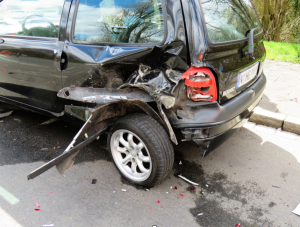Subrogation is important because it prevents you and your insurance company from paying for damages or financial losses that aren’t your fault.
When an accident victim goes to the hospital after an accident or gets their car repaired, they initially tend to pay for their services with their own health or auto insurance. When the victim goes to the hospital, they will be charged for the services rendered by the agreed-upon rate between the hospital and their insurance company. The health insurance company may recover from the victim’s personal injury settlement if their award exceeds the sum of their economic and non-economic damages. Your personal injury attorney’s goal, then, is to help you keep as much of your settlement as possible from your accident claim. Click here to learn more about how a personal injury attorney can break down the concept of subrogation and give you a free estimate of what your case is worth.
What are damages?
Damages are losses suffered by an injured victim after an accident. Although they vary a bit from case to case, they are typically broken down into two types: economic damages and non-economic damages. Economic damages are your financial losses, such as the damage to your car or the expenses accrued for services at a hospital, doctor’s office, pharmacy, or physical therapy clinic. At first, those economic damages may be paid by your auto or health insurance.
Non-economic damages compensate you for your pain and suffering. If you have been seeing a psychologist or therapist for your anxiety or emotional anguish after your accident, you may have been able to pay for them with your health insurance or through another benefits program. This is a good step for you to help you with healing your whole self after your accident. Ultimately, however, the liable party should be paying for your damages, not your insurers.
Why is subrogation important?
Subrogation is a legal right that insurance companies have to collect from a third-party carrier that caused a loss to the insured. If you are in an accident and are not at fault, then the at-fault driver’s auto insurance (known as the Third Party Carrier, or TPC) must pay for your damages. If they’re taking a while to do so and your bills are piling up, or the body shop won’t do the work until the bill is paid, your insurance steps in and pays in the meantime.

Subrogation is important because it prevents you and your insurance company from paying for damages or financial losses that aren’t your fault. It’s also important because you don’t have weeks or months for your claim to settle, so your insurance company takes care of your expenses in the meantime. Subrogation helps keep your insurance premiums low.
What is an example of subrogation?
Andrea and Sally were involved in a car crash, resulting in Sally’s car getting very damaged and requiring repairs. When Sally took her car to the body shop, she learned that repairs would cost her $4,000, but she has insurance, so they will cover the full cost of her repairs. However, after Sally’s insurance paid out the total for her repairs, it was discovered that Andrea broke the law and caused the accident. So Sally’s insurance company will use the subrogation doctrine to recover its losses from Andrea. Sally’s insurer sues Andrea to recover the expenses paid to fix the car.


Join the conversation!